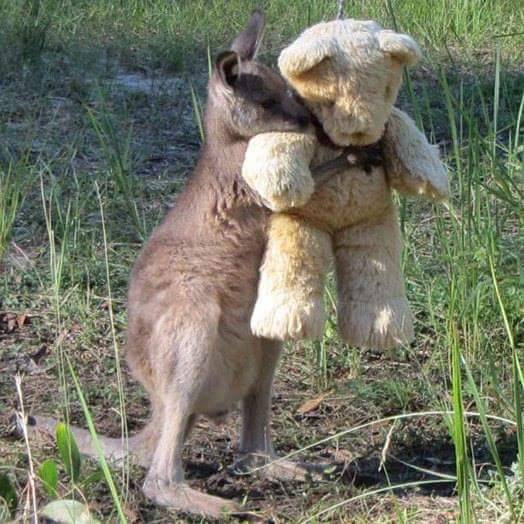Text
reblog or reply with your love song. you know, the one that you think is what love sounds like
64K notes
·
View notes
Text

Nature's Way - Carla Vize-Martin
British , b. 1970 -
Mixed media on canvas , 15 x 15 in.
877 notes
·
View notes
Text





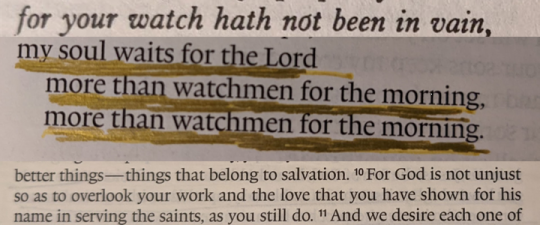









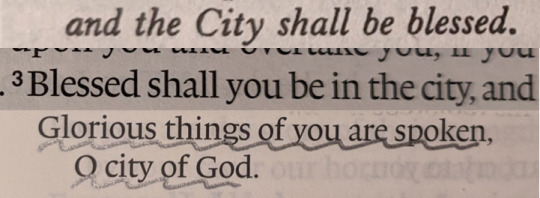

The Return of the King title page // Heading to Zechariah 9
The Song of the Eagles // The Holy Bible
Psalm 30:4; Isaiah 25:8a; Revelation 20:14a; Zechariah 9:9a; Psalm 130:6 & Hebrews 6:10; Psalm 107:16; Zechariah 9:9b; 1 Corinthians 15:54b & John 16:33b; Philippians 4:4; Hebrews 9:28a; John 1:14; Luke 1:75; Revelation 22:2b; Isaiah 2:2a; Deuteronomy 28:3a & Psalm 87:3; Psalm 149:1
1K notes
·
View notes
Text
hey don’t cry. trees grow out of the ground.
38K notes
·
View notes
Text
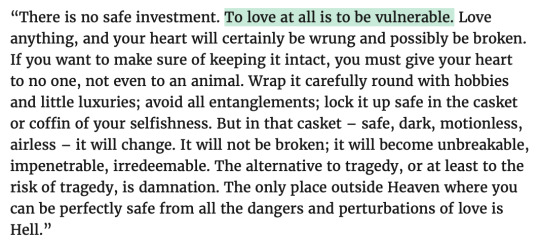


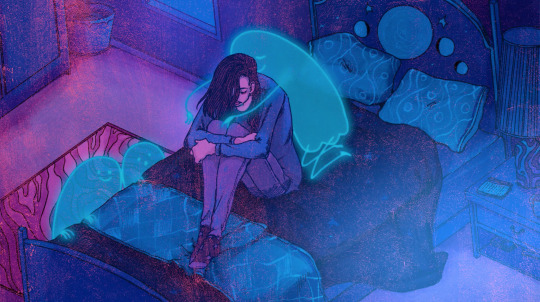
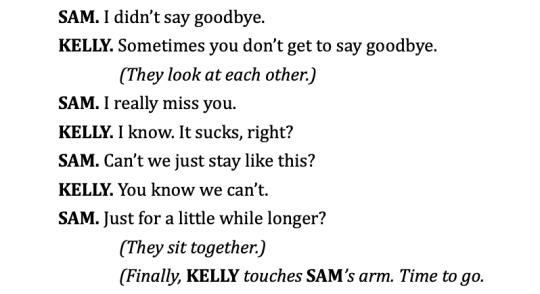










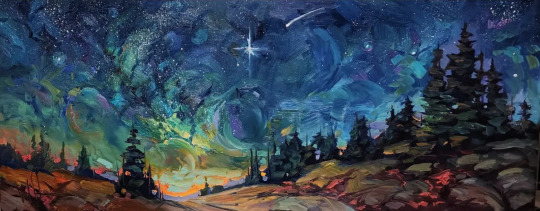



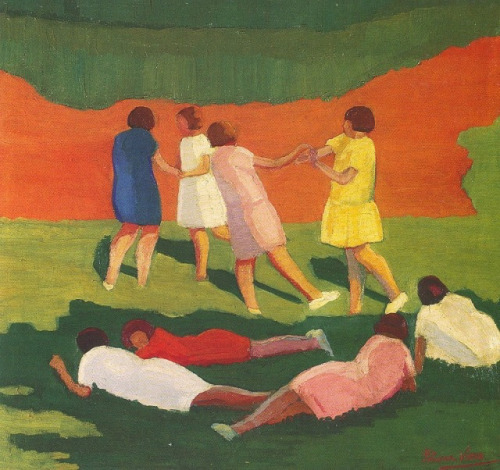

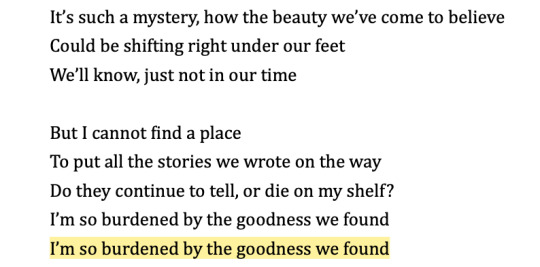





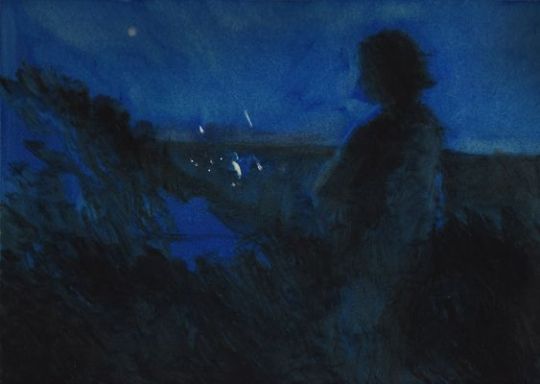


#oh my actual goodness#what a masterpiece#web weaving#grief#love#ending with the into the west makes me insane#light of the world#connection#the two roads go onward
197 notes
·
View notes
Text
One of the most striking and consistent features of Tolkien’s works is that the people who think they’re the hero of the story never are.
In The Hobbit, Thorin & Company (less Bilbo, who feels lost and out of place continually) think they’re the heroes of a story where they kill Smaug and regain their kingdom and treasure - and then Smaug is killed by Bard, a character who isn’t even introduced until the moment of Smaug’s attack. And Thorin decides that the person responsible for the death of Smaug, without whom Thorin would have no treasure and also be dead, is his enemy. Self-appointed heroes tend not to like it when someone else displaces them from their role in the story.
In The Lord of the Rings and The Silmarillion, the pattern recurs again and again and again, both with some very sympathetic characters and some outright villainous ones. We see it in characters who are jealous for prominence and position, but also in some who mean well and have concluded that all the burden of saving/protecting the world lies upon them. The common thread is the conviction that the world will only be saved if people do what the self-appointed hero wants, how they want it, when they want it, and - in the most severe cases - only if they specifically follow and offer their support to the hero in doing it. If someone isn’t backing up the hero, they are assumed to be not contributing.
Boromir: “those who shelter behind us give us praise…much praise but little help.” ‘Doom’ he interprets as “the doom of Minas Tirith.” And, later, when the Ring has gained more hold on him: “How I would drive the hosts of Mordor, and all men would flock to my banner!”
And Denethor: “Yet the Lord of Gondor is not to be made the tool of other men’s purposes, however worthy. And to him there is no purpose higher in the world as it now stands than the good of Gondor.” Later falling to, “I will not step down to be the dotard chamberlain of an upstart!”
Neither of them are fundamentally ill-meaning; both of them fall prey to the idea that they are the world’s only hope of standing against Sauron, and break under that burden.
Less well-meaning, but nonetheless only gradually corrupted until near the end, is Saruman: “hindered rather than helped by pur weak or idle friends”. Again, he percieves himself as the only chance of defeating - or controlling/manipulating - Sauron.
And more cases in The Silmarillion, of characters who have determined that they are the hero and following their lead is the contribution that counts. Fëanor and his following, and indeed the Noldor in general, going to Middle-earth to overthrow Morgoth, and deciding that anyone who does not back them is idle or cowardly or traitorous. Túrin, who again and again insists that if you are not doing things the way Túrin wants, you are not doing anything. Watch in particular for the repeated theme that dissent=cowardice.
Fëanor: “Say farewell to ease! Say farewell to the weak!…Let the cowards keep this city!” And “If Fëanor cannot overthrow Morgoth, at least he delays not to assail him, and sits not idle in grief.” And “fainthearted loiterers.” And “needless baggage on the road.” It is worth recalling that the Valar are not as idle as Fëanor thinks, and their largest contribution prior to the War of Wrath - the creation of the Sun - is a major blow to Morgoth, and orcs dread and shun the Sun through the whole First Age and after.
Túrin: When Beleg questions the effectiveness of his strategy: “I will be the captain of my own host, and if I fall, then I fall. Here I stand in the path of Morgoth, and while I so stand he cannot use the southward road. For that in Nargothrond there should be some thanks; and even help with needful things.” This does not acknowledge that the ability of Morgoth’s armies to come south in force is itself a consequence of Beleg leaving Doriath to aid Túrin; prior to that, Doriath had held Dimbar and kept the orcs back.[1] So Túrin is claiming prime credit for solving a problem that he has, in effect, caused. Then in Nargothrond, to Gwindor: “And do those that you speak of love such skulkers in the woods?” And to Gelmir and Arminas: “runagate…get you back to the safe shores of the sea.” (It is worth noting that here, as well as when Fëanor calls the Noldor who do not want to return to Middle-earth cowards, the narrative observes outright that such accusations are false.) And then to Aerin, who has a bravery he could never imagine and cannot comprehend: “A faint heart is yours, Aerin Indor’s daughter…you were made for a kinder world.”
I recognize that Túrin is a complex character, as are most of the others I have mentioned. My point here is that there is a consistent thread running through Tolkien’s works, that however well-meaning these attitudes may be, they are ultimately destructive.
The great victories come from characters with wholly other attitudes. The ones who don’t think that they are the one hero who can or has to fix everything; who look at insurmountable perils and say this is too big for me, but I will do what I can. And those who recognize that they play one part among many, and not the most important one. That is Frodo and Sam; that is Merry and Pippin. That is Legolas and Gimli, who, standing in Helm’s Deep awaiting battle, recognize that their own peoples far away the same dangers, and they are not the only ones fighting. This is Aragorn, who uses the hero-delusion as a façade to trick Sauron, walking into a trap on the slim hope that it may aid Frodo. This is Beren and Lúthien, who say this is beyond me and I don’t know what I’m doing, but for the sake of the one I love I must try, and succeed because of that. This is Tuor, who gets destiny thrust upon him despite - perhaps because of - the fact that he is not looking for it. This is Elrond, who plays a supporting role in every conflict he is placed in, who aids and shelters and advises and heals and does not rule.
It is entirely fitting that the man who wrote “the medievals were only too right in taking nolo episcopari as the best reason a man could give to others for making him a bishop” wrote stories enshrining the idea that nolo heros was the best qualification for being a hero. And likewise perfectly fitting that the temptation offered by the Ring - to people of essential decency - is not deliberate, selfish despotism, but the exact conviction or attitude or temptation described above: you’re the hero, you’re the one who can fix everything. “For the way of the Ring to my heart is pity, pity for weakness and the desire of strength to do good.” “In place of the Dark Lord you will set up a Queen” - and Sam echoing in plainer language Galadriel’s temptation - “You’d put things to rights…You’d make some folk pay for their dirty work” - and Galadriel recognizing the deception of the temptation - “That is how it would begin. But it would not stop with that, alas!” Boromir’s vision of armies flocking to his banner, and Sam’s of “Samwise the strong, Hero of the Age.” And, at the end, it fits with with Tolkien’s description of Sauron - the temptation that the Ring is offering to these good characters is the very temptation that Sauron himself initially fell to, the desire to fix everything, make everything work properly.
Tolkien’s conception of the real hero, rather than the self-appointed one, echoes at last the Ainulindalë and the Valar: the idea that creation and shaping and changing the world are fundamentally a collaborative effort, born of and enriched by the visions and contributions of many people, not by some static programme.
[1] The Narn mentions that while Beleg searches for Túrin the first time Dimbar is overrun by orcs, who are then able to reach to the east of Brethil, which they had not before. When Beleg returns to Dimbar the orcs are driven back; but when he joins Túrin at Amon Rudh, Dimbar is taken and the orcs come south again.
1K notes
·
View notes
Text


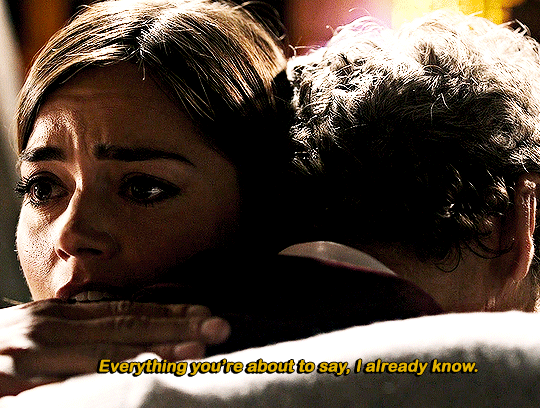
Oh, she knows.
684 notes
·
View notes
Text

my favourite stories - 2/? - The Emerald Atlas by John Stephens
Time, Kate was learning, was like a river. You might put up obstacles, even divert it briefly, but the river had a will of its own. It wanted to flow a certain way. You had to force it to change. You had to be willing to sacrifice.
#my favourite stories#moodboards#the emerald atlas#the books of beginning#tbob#john stephens#mine#aesthetic#children's lit#middle-grade fantasy#timetravelcore#i am inventing that term lmao#anyway everyone go read this series it is top tier greatest ever so emotional and funny and clever and i would die for kate wibberly. anywa
14 notes
·
View notes
Photo

Handwritten draft of one of the last poems of Sylvia Plath ‘Sheep in Fog’
The hills step off into whiteness.
People or stars
Regard me sadly, I disappoint them.
15K notes
·
View notes
Text

beautiful beautiful by judas h. (after cameron awkward-rich's meditations in an emergency) image ID in alt
86 notes
·
View notes
Text
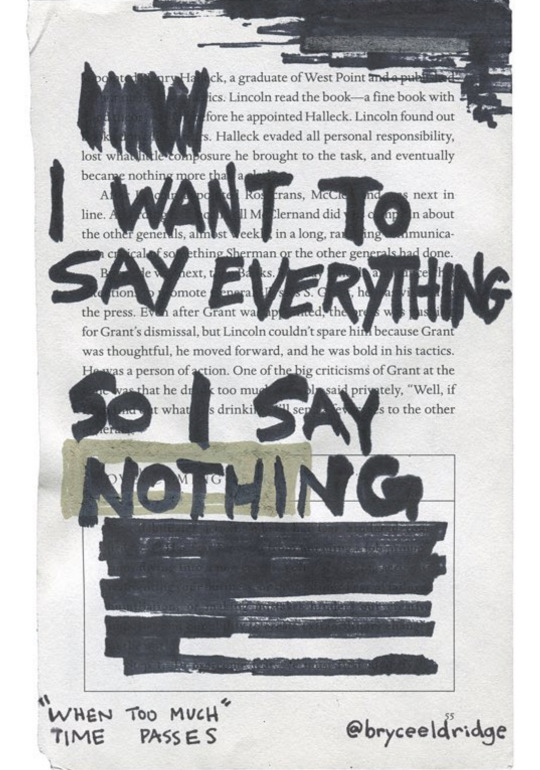
when too much time passes by bryce eldridge
169 notes
·
View notes
